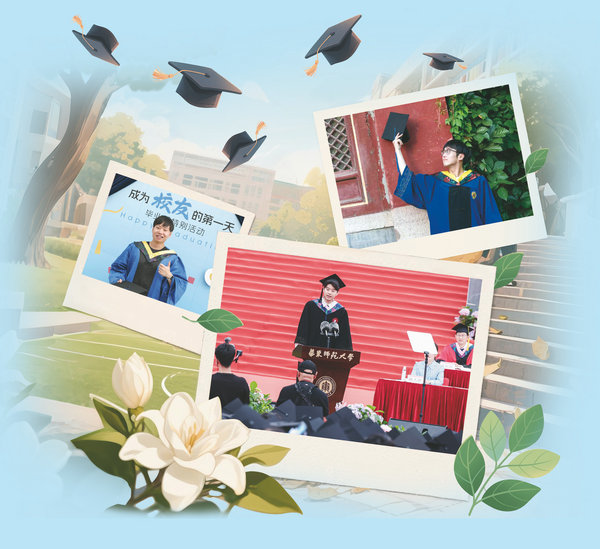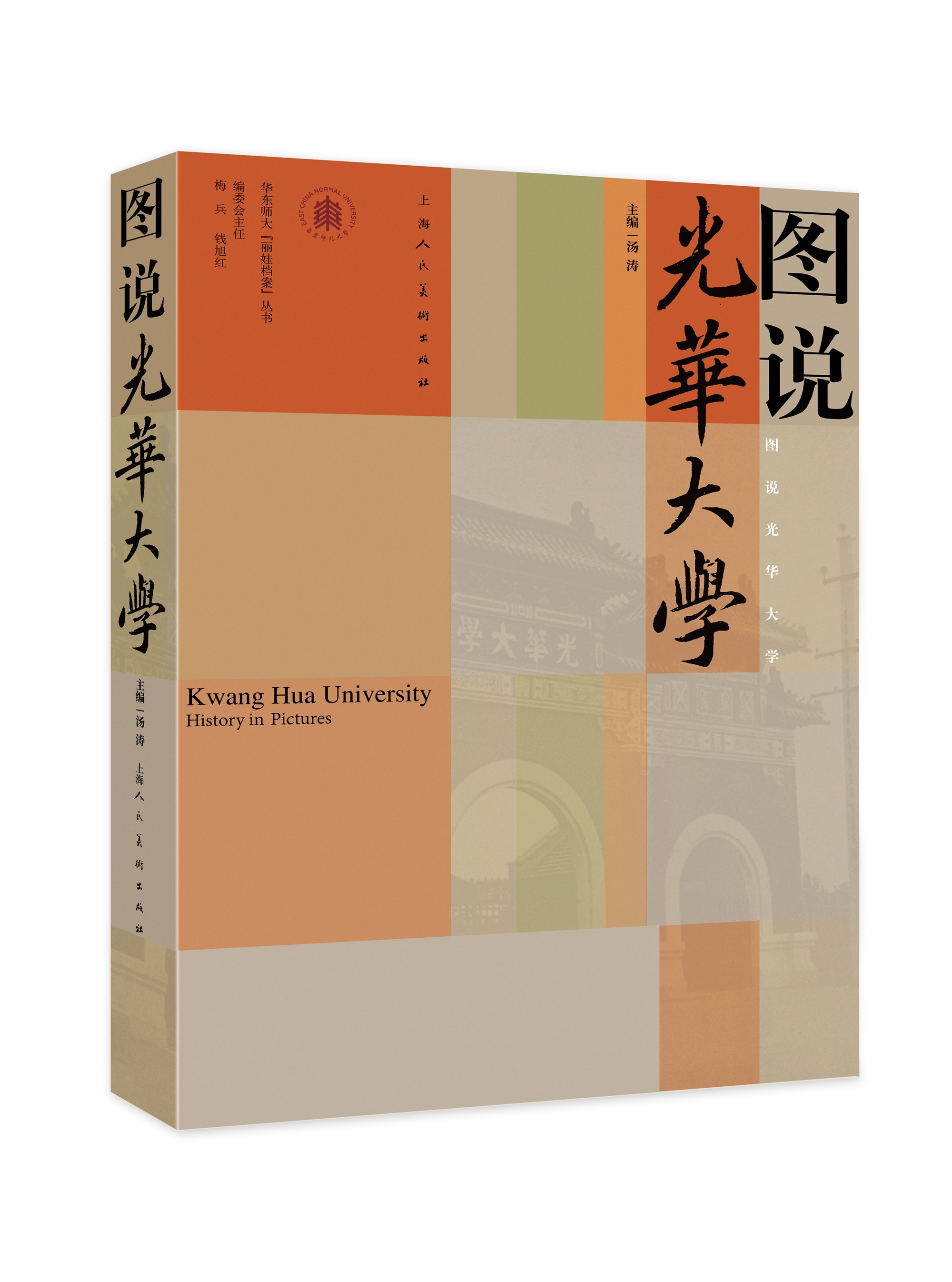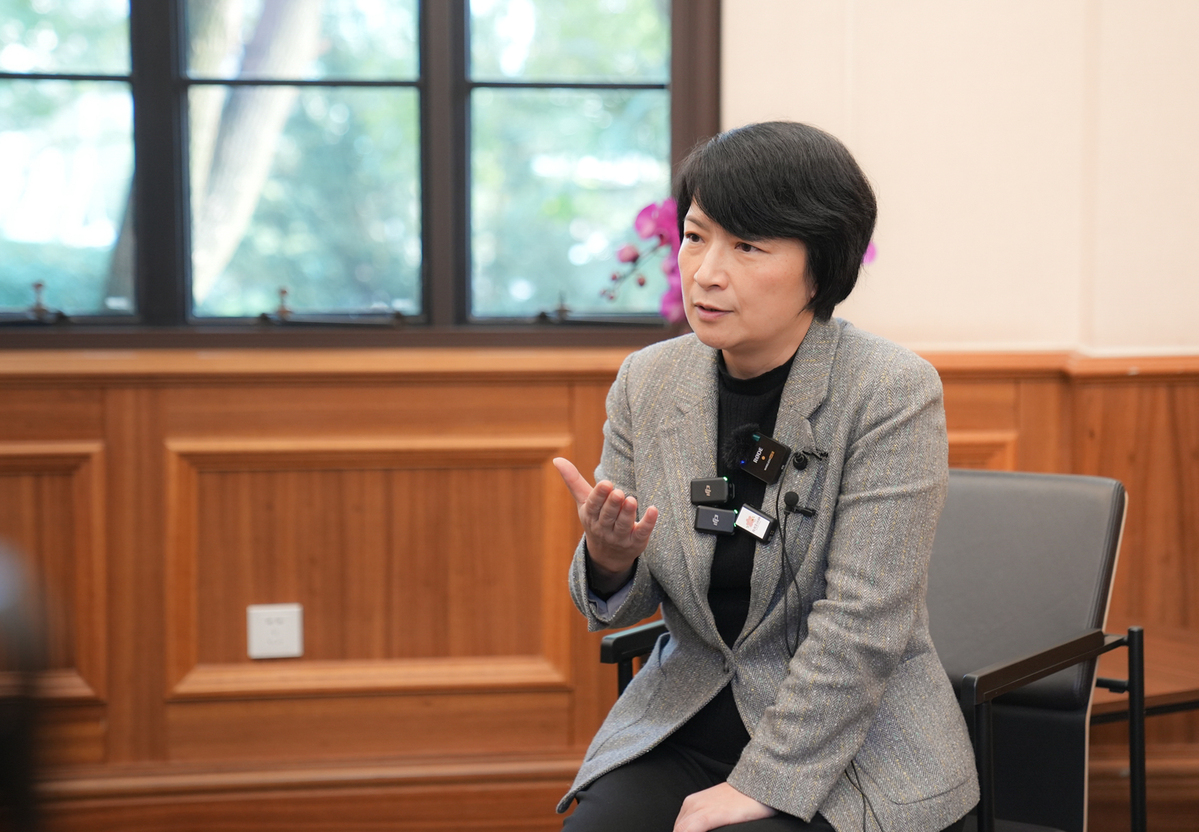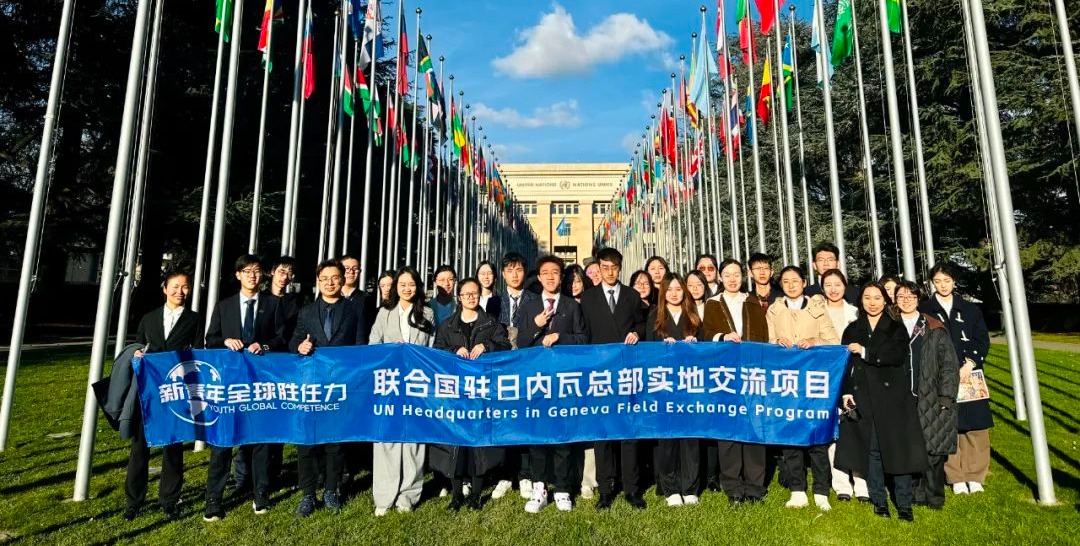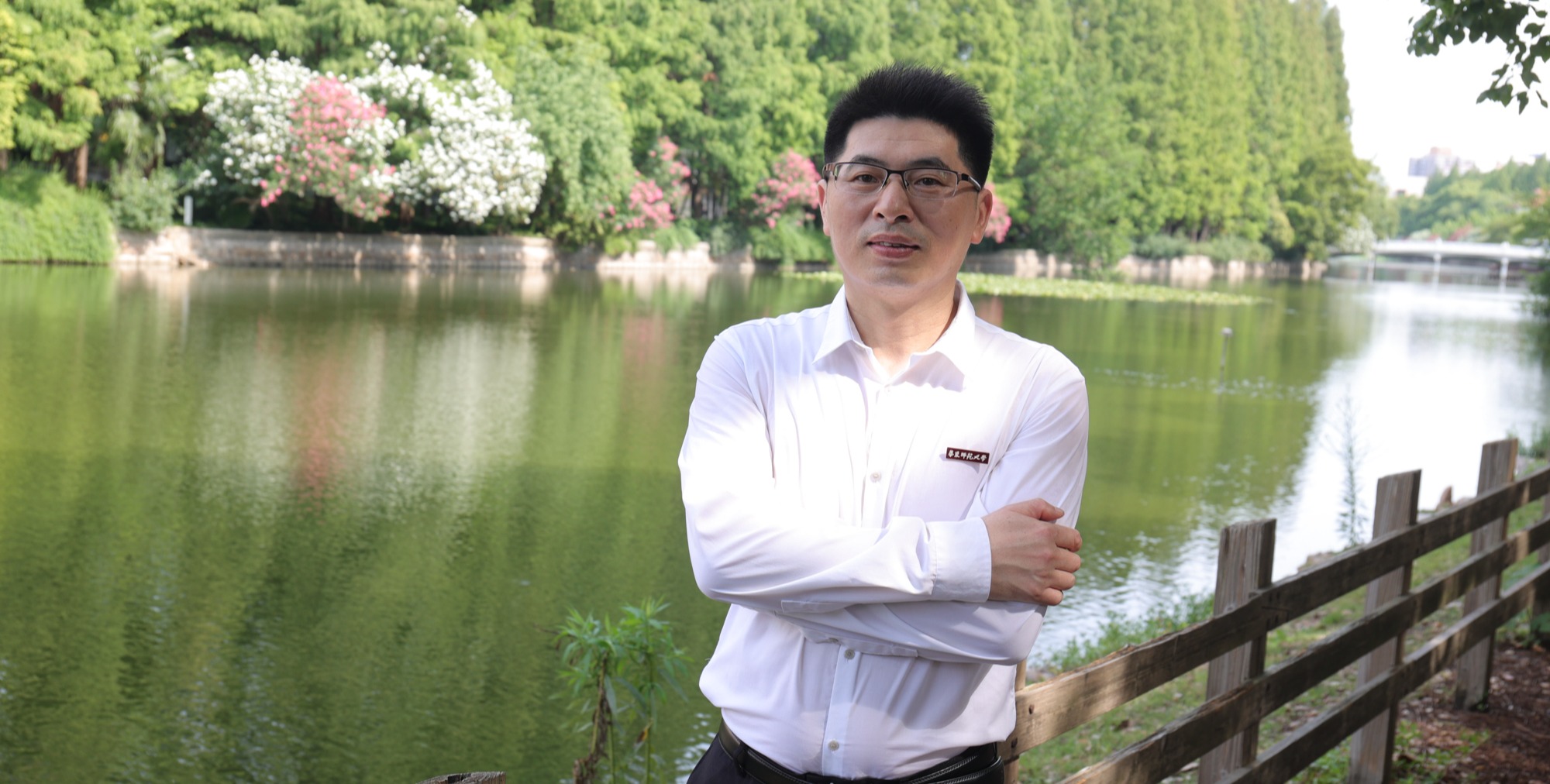Recently, Prof. David A. Leigh’s team from the School of Chemistry and Molecular Engineering of ECNU has achieved breakthrough progress in molecular topology. Related research results titled “Tying different knots in a molecular strand”were published in Nature on 26th Aug. with ECNU as the primary affiliation.
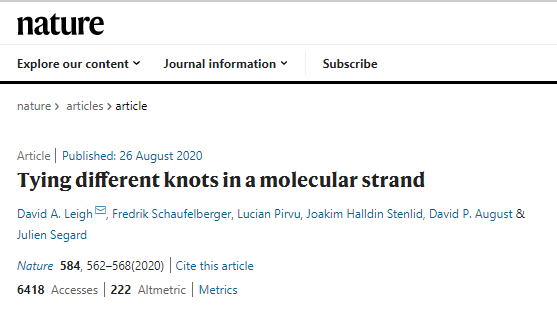
“The greatest innovation of this study lies in the fact that we have realized for the first time the process of using a single molecular strand in the construction of three different molecular topologies by mimicking molecular chaperones. This process completely differentiates from the strategy, as previously reported in this field, that one synthetic method should correspond to one topological structure. It has greatly expanded the potential of molecular topology in respect of studying the function and conformational relationship of topological proteins in the future.” Prof. David A. Leigh explained, “among the three topological structures we have obtained, there is a 52-knot structure with lower symmetry. This is the first time that scientists have reported the synthetic strategy of this topology.”
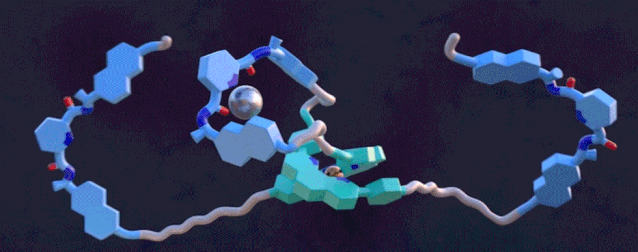
As a pioneer of chemical topology, Prof. David A. Leigh has made significant contributions to establishing synthetic tactics in the construction of molecular knots and link, and exploring their potential functions and properties. In their previous researches, Prof. David A. Leigh’s team has reported many strategies that used different metal templates to construct single molecular knot of different complexities, but there is still a lack of strategies to tie different knots with a single molecular strand.
In response to this question and inspired by the mechanism of chaperones, Prof. David A. Leigh’s team, based on the above efforts, used transition metal ions and lanthanide metal ions as the orthogonal templates on a molecular chain to construct a molecular knot 52 by means of pointchirality. In addition, researchers can also use such a molecular chain to selectively synthesize two other topological isomers, macrocyclic 01 (unknot) and molecular knot 31. This has not only provided a strategy for constructing complex molecular knots, but also promoted the development of molecular topology.
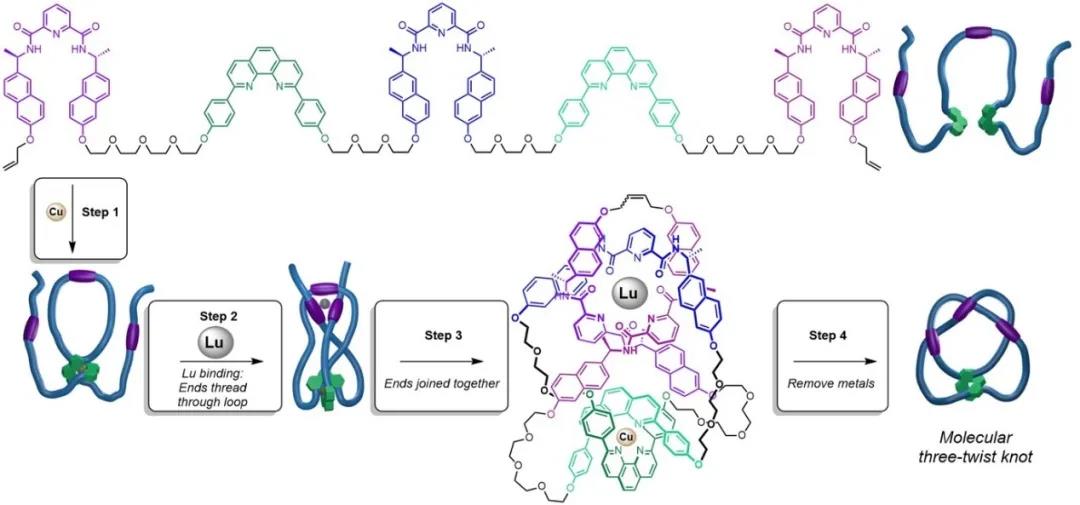
The construction ofmolecular knot 52
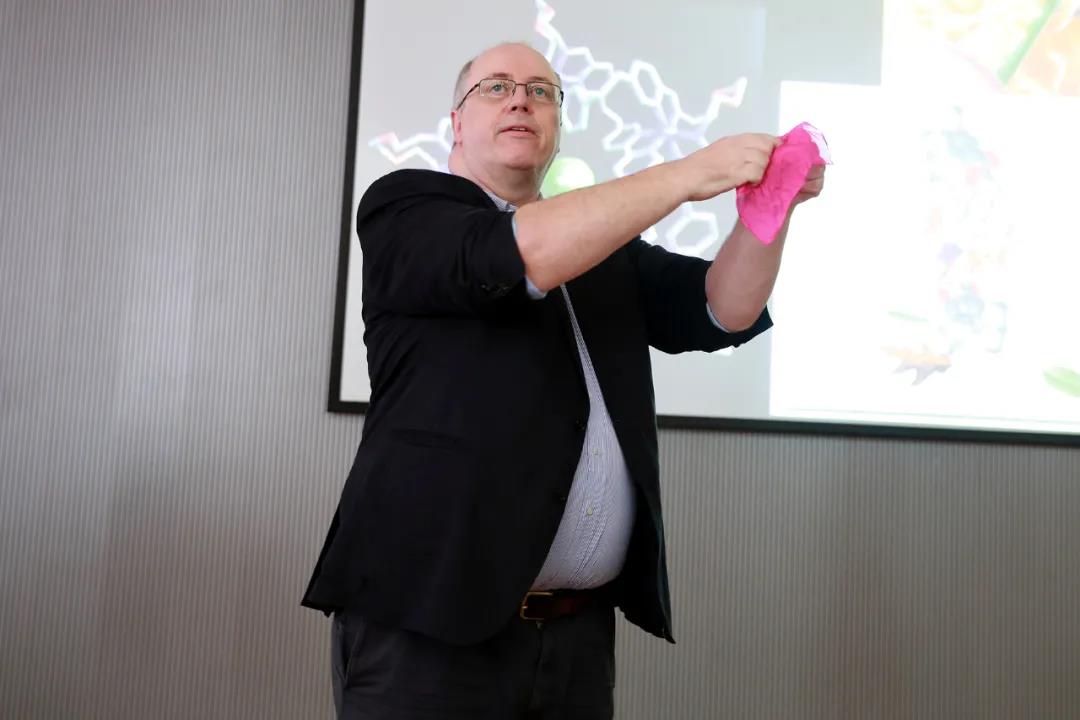
Prof. David A. Leigh
Currently, as Sir Samuel Hall Professor of the School of Chemistry, University of Manchester, Royal Society Research Professor and Distinguished Professor of ECNU, he has long been engaged in the research of molecular machines and molecular topology. He has published more than 16 papers inNature and Science.
Prof. David A. Leigh joined the School of Chemistry and Molecular Engineering of ECNU in October 2017. In less than three years, he has established a team focusing on artificial molecular robotics and molecular topology. He has been dedicated to studying the operating principles of biomimetic molecular machines and expanding the potential functions and applications of single-molecule topological structures. His team has achieved many important results including 2 papers in JACS(Journal of the American Chemical Society) and 2 papers in PNAS (The Proceedings of the National Academy of Sciences). Dr. Zhang Liang, a researcher from ECNU’s School of Chemistry and Molecular Engineering, is the first author of these papers.
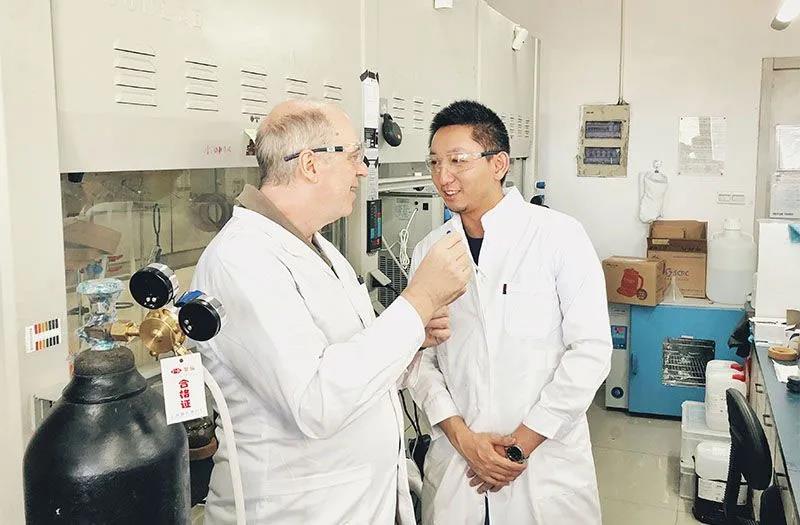
Prof. David A.Leighand Dr. Zhang Liang
Because of Prof. David A.Leigh’s research achievements in the field of nano-molecular science and technology, Nature published a report titled “Small science grows large in new hands in 2018 about his research team, saying that relevant cooperation has become the typical case of promoting Sino-UK friendly scientific and technological cooperation, and has established a new model for the cooperation between the two countries in the future.
“We have two research teams in China and Britain,” said Prof. David A. Leigh, “The two teams have always been cooperating closely to share resources. I believe we will do betterin the future.”
Prof. David A. Leigh and Dr. Zhang Liang organize “tea break holidays” on a regular basis to discuss life planning, hobbies and interests together with other team members. In addition, meetings that set no restriction on the content of discussion are regularly organized between the Chinese and UK research teams to stimulate the students’ enthusiasm for exploration, and cultivate their abilities of independent thinking, communication and collaboration.
Source: School of Chemistry and Molecular Engineering
Copy editor: Philip Nash
Editor: Siyuan Zhang

